Premium Only Content
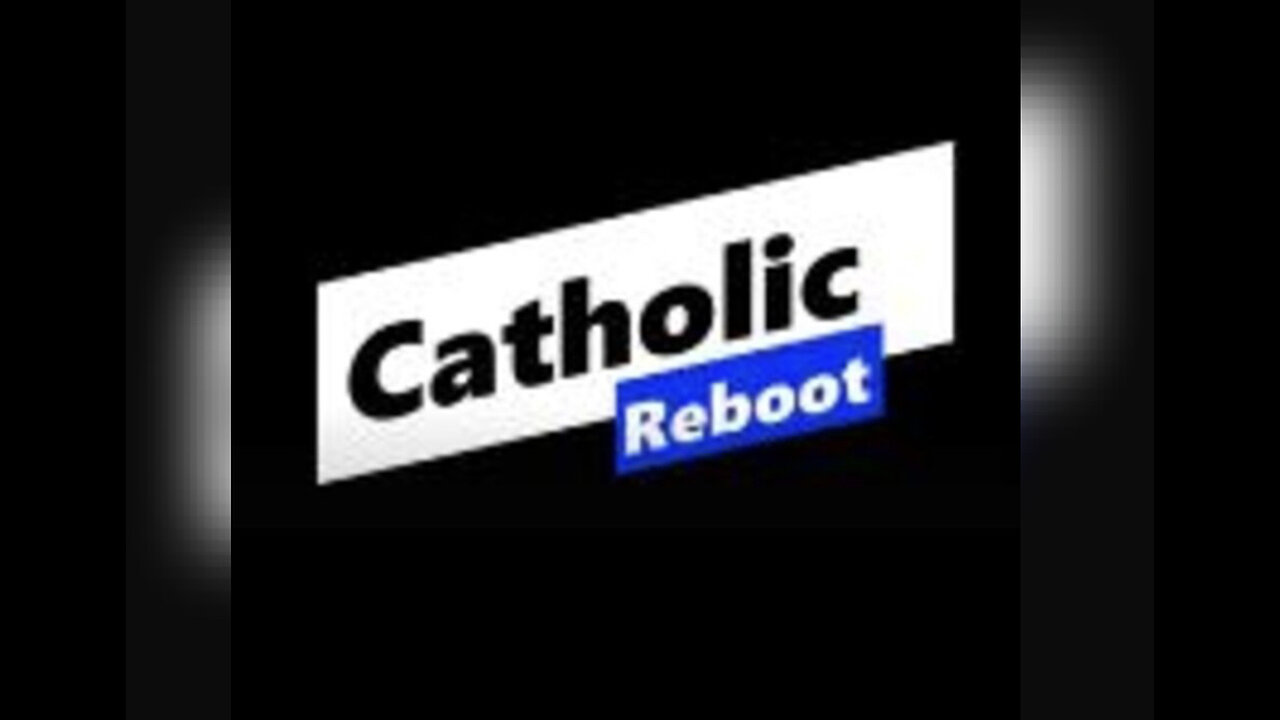
Episode 3185: To See the Son Is to See the Father: Christ’s Exclusive Path to Salvation
St. Bernard of Clairvaux
www.catholic-reboot.com
Nightly Zoom Coordinates for Rosary:
Meeting ID: 865 8978 0399
Passcode: Wjjv4960!
Speak Lord for your Servant is Listening
Book Recommendation of the Day
On Loving God (De Diligendo Deo): Perhaps his most famous work, written to explain why and how we should love God purely for His own sake. It remains a masterpiece of Catholic spirituality.
On Catholic Reboot you know you will always get the Catholic Truth. You can take that to the bank. I started this podcast with one mission. To promote the truth Catholic faith unwaveringly. No apology and no compromise. Now my job is fairly easy. Why? Because I simply just follow what the church always taught through the great saints, fathers of the church, theologian and great popes. So I don’t give you my opinion because my opinion is meaningless but instead I simply teach what our church has always taught before its high-jacking after V2. Much of what I say may cause you to say “Says who or who do you think you are?” Easy answer, I am Catholic.
So we as Catholics must always be on alert for the compromises that come out of Rome, Our Dioceses and of course our parishes and it was brought to my attention by Sharon. They are saying “Father, Son and Equal Spirit” Now to many unsuspecting modern Catholics they’d say “So what or Isn’t that True?” That’s the sad part. Many Catholics have no idea how hard our Church fought for the Nicene Creed and even one of the Causes of the Great Schism in 1054.
The True Teaching of the Trinity
The Church, from the Councils of Nicaea (325) and Constantinople (381), teaches that:
• God is one in essence (ousia, substantia).
• God is three in Persons (hypostases, personae): Father, Son, and Holy Spirit.
• The Son is consubstantial (of the same substance) with the Father.
• The Holy Spirit proceeds from the Father and the Son (Filioque) and is likewise consubstantial.
This is why the Creed says:
“I believe in the Holy Ghost, the Lord and giver of life, who proceedeth from the Father and the Son, who together with the Father and the Son is adored and glorified.”
Notice: the wording emphasizes unity of substance while maintaining distinction of Persons.
Why “Equal Spirit” Is Wrong
The phrase “Equal Spirit” is not simply sloppy language it undermines dogma:
• It replaces the name of the Third Person (“Holy Spirit”) with a description of quality (“Equal Spirit”).
• It reduces the Spirit to a function of equality instead of affirming His Personhood. The Holy Ghost is not “the equalizer” between Father and Son He is the Third Person of the Trinity, consubstantial and co-eternal.
• It subtly denies the personal relations that define the Trinity:
o Father = unbegotten
o Son = begotten of the Father
o Holy Spirit = proceeds from Father and Son
Calling Him “Equal Spirit” obscures this and risks modalism (treating the Trinity as three “roles” or “functions”) or subordinationism (denying equality while pretending to affirm it).
Scriptural Witness
Christ commands baptism “in the name of the Father, and of the Son, and of the Holy Ghost” (Matthew 28:19).
• He does not say “Equal Spirit.”
• The divine names reveal the mystery of the Trinity. To alter them is to distort revelation itself.
Now you may say what does this have to do with this episode titled “To See the Son Is to See the Father: Christ’s Exclusive Path to Salvation”
Well I am getting there but I am pointing out how you as Catholics must always be vigilant even if you are accused of being a naysayer. You know you’ve heard me say the modern Catholic Church has become the “Happy Slappy Church – Is everyone Happy”. But how is this possible when we deny the son by supporting heretical faiths as an equal path to salvation. Our Church is not a democracy it is a Church that points to “All things in Christ” and so if our Church accepts other faiths it is denying Christ and his mystical body the Catholic Church. Many faithful Catholics will say but that isn’t fair. First, Christ is all fair but very just. He is only one truth and what did he say?
Christ says this very clearly in several places in the Gospels. Here are the key passages where He reveals that to know Him is to know the Father:
• John 8:19
“They said therefore to him: Where is thy Father? Jesus answered: Neither me do you know, nor my Father: if you did know me, perhaps you would know my Father also.”
• John 10:30
“I and the Father are one.”
• John 12:45
“And he that seeth me, seeth him that sent me.”
• John 14:7–9
“If you had known me, you would without doubt have known my Father also: and from henceforth you shall know him, and you have seen him. Philip saith to him: Lord, shew us the Father, and it is enough for us. Jesus saith to him: Have I been so long a time with you; and have you not known me? Philip, he that seeth me, seeth the Father also. How sayest thou, Shew us the Father?”
• John 17:3
“Now this is eternal life: That they may know thee, the only true God, and Jesus Christ, whom thou hast sent.”
These verses together form a consistent teaching: knowledge of Christ is knowledge of the Father, because He is one with the Father in being and essence (consubstantial, as we profess in the Creed).
To See the Son Is to See the Father: Christ’s Exclusive Path to Salvation
“If you had known me, you would without doubt have known my Father also: and from henceforth you shall know him, and you have seen him. Philip saith to him: Lord, shew us the Father, and it is enough for us. Jesus saith to him: Have I been so long a time with you; and have you not known me? Philip, he that seeth me, seeth the Father also. How sayest thou, Shew us the Father?”
Here Our Lord reveals a truth that lies at the very heart of Christianity: to know Christ is to know the Father; to see Christ is to see the Father. The two cannot be separated, for the Son is “consubstantial with the Father” as we profess in the Nicene Creed.
Reflection on the Passage
Philip’s request “Lord, show us the Father” reflects a natural longing to behold God directly. But Our Lord corrects him: “He that seeth me, seeth the Father also.”
This is a profound revelation of the Incarnation: Christ is not merely a prophet, not merely a moral teacher, but God Himself made visible in the flesh. St. Augustine reminds us: “Christ is not merely the way by which we travel; He is also the destination. For when we reach Him, we have reached the Father.”
Thus, to encounter Christ is to encounter God Himself. To deny Christ is to deny God. There is no other path.
Doctrinal Clarity
The Catholic Church, faithful to Sacred Scripture and Tradition, has always taught the exclusivity of salvation in Christ. St. Peter declared before the Sanhedrin:
• “Neither is there salvation in any other. For there is no other name under heaven given to men, whereby we must be saved” (Acts 4:12).
Pope St. Pius X reaffirmed this truth in his encyclical E Supremi Apostolatus: Christ is the cornerstone, and outside of Him there is only ruin. The Council of Florence (1439) stated unequivocally that those outside the Catholic Church pagans, Jews, heretics, and schismatics cannot be saved unless they are joined to the Body of Christ before death.
This is not cruelty but divine mercy: God has provided one sure path, His only Son, so that no one need wander in confusion.
Contrast with Modern Errors
And yet, in our own time, even within the Catholic Church, many voices proclaim a false gospel: that all religions are valid paths to God, that Judaism, Islam, Buddhism, and other false faiths can lead souls to salvation apart from Christ.
This is not the teaching of Christ, but the deception of modernism and indifferentism. To claim that the Father may be worshipped apart from the Son is to contradict Our Lord Himself. For Christ says: “He that honoureth not the Son, honoureth not the Father who hath sent him” (John 5:23).
When Church leaders praise the “faith” of those who deny Christ, they are not honoring God but denying Him. As St. John the Apostle warns:
• “Whosoever denieth the Son, the same hath not the Father” (1 John 2:23).
The modern notion of “many paths to God” empties the Cross of its meaning. If salvation were possible through Buddhism, Judaism, or Islam, then why did the Son of God suffer and die? To accept such heresy is to trample on Calvary.
The Unity of the Father and the Son (5 minutes)
• The Church teaches the doctrine of consubstantiality: the Son is of the same substance as the Father.
• To know Jesus is to know God; to deny Him is to deny God.
• St. John Chrysostom writes: “Our Lord shows that he is in no respect inferior to the Father, but equal in all things, and that whoever sees him, sees the Father.”
Supporting Scripture:
• John 10:30 – “I and the Father are one.”
• John 12:45 – “And he that seeth me, seeth him that sent me.”
• 1 John 2:23 – “Whosoever denieth the Son, the same hath not the Father.”
Reflection Question:
Do I proclaim with my life and words that Christ is truly God, or do I compromise in order to be accepted by the world?
The Modern Error of Pluralism (6 minutes)
• Today, even within the Church, leaders suggest that other religions Judaism, Islam, Buddhism, Hinduism are “valid paths” to God.
• This contradicts the teaching of Christ Himself.
• If Judaism were salvific apart from Christ, why did Our Lord rebuke the Pharisees? If Islam leads to the Father, then Christ’s death was unnecessary. If Buddhism saves, then the Cross is emptied of its meaning.
• The Council of Florence (1439) declared: “The Holy Roman Church firmly believes, professes, and preaches that none of those existing outside the Catholic Church… can have eternal life unless they are joined to the Catholic Church before the end of their lives.”
Saintly Witness:
• St. Francis Xavier: “Many, many people here are not becoming Christians for one reason only: there is nobody to make them Christians.” He risked his life to preach because he knew there was no salvation apart from Christ.
Reflection Question:
Do I fall into the temptation of believing all religions are equal, or do I hold firm that Christ is the only way?
Denying the Son Is Denying the Father (5 minutes)
• Christ Himself declared: “He that honoureth not the Son, honoureth not the Father who hath sent him” (John 5:23).
• To attempt to worship the Father without Christ is false worship. This is why Judaism, Islam, and other religions cannot lead to salvation — they explicitly deny the Son.
• St. Cyprian wrote: “He cannot have God for his Father who does not have the Church for his Mother.”
Application:
This means that Catholic ecumenism must be authentic — aimed at conversion, not affirmation. To affirm others in false worship is to aid them on the road to perdition.
Reflection Question:
Do I see evangelization as an act of charity? Or do I remain silent out of fear of offending others?
The Danger of Modern Ecumenism (5 minutes)
• Vatican II’s vague language on other religions has been twisted into the belief that all religions are equally pleasing to God.
• Pope St. Pius X, combating modernism, wrote: “It is necessary to recall and to reprove, as being a most pernicious error, that which holds that all religions are equally good and praiseworthy.”
• Today, events like interfaith prayer gatherings scandalize the faithful and contradict Christ’s words in John 14.
Reflection Question:
When I see compromise in the Church, do I pray, fast, and make reparation for souls being led astray?
Fidelity to Christ Alone
• Our task is to cling to Christ and to His Church without compromise.
• As Traditional Catholics, we must preserve the Faith whole and entire.
• St. Athanasius encouraged the faithful during the Arian crisis: “Even if Catholics faithful to Tradition are reduced to a handful, they are the true Church.”
Reflection Question:
Am I willing to stand with the few if necessary, knowing that fidelity to Christ is fidelity to the Father?
Call to Fidelity
As Traditional Catholics, we must hold fast to the words of Our Lord in John 14:7–9. The Incarnate Word has made the Father known: “He that seeth me, seeth the Father also.”
• We must reject the siren call of pluralism.
• We must profess without fear that Christ is the only way.
• We must love our non-Catholic neighbors enough to share this truth with them, for charity without truth is deception.
The Church’s mission is not to affirm men in their errors but to bring them into the light of Christ. As St. Francis Xavier tirelessly preached to pagans, so too must we insist: Outside of Christ, there is no salvation.
• Matthew 10:32–33
“Every one therefore that shall confess me before men, I will also confess him before my Father who is in heaven. But he that shall deny me before men, I will also deny him before my Father who is in heaven.”
Epistle: 2 Timothy 4:1–8
“Preach the word: be instant in season, out of season; reprove, entreat, rebuke in all patience and doctrine. For there shall be a time, when they will not endure sound doctrine… But be thou vigilant, labour in all things, do the work of an evangelist, fulfil thy ministry. Be sober. For I am even now ready to be sacrificed: and the time of my dissolution is at hand. I have fought a good fight, I have finished my course, I have kept the faith. As to the rest, there is laid up for me a crown of justice, which the Lord the just judge will render to me in that day.”
Gospel: Matthew 5:13–19
“You are the salt of the earth. But if the salt lose its savour, wherewith shall it be salted? … You are the light of the world. A city seated on a mountain cannot be hid… Let your light so shine before men, that they may see your good works, and glorify your Father who is in heaven… For amen I say unto you, till heaven and earth pass, one jot, or one tittle shall not pass of the law, till all be fulfilled.”
Reflection on the Epistle
St. Paul’s words to Timothy are stirring: the duty of the shepherd is to preach the word in season and out of season. The faithful priest is not swayed by popular opinion, nor silenced by hostility. He must be vigilant, sober, and courageous willing even to embrace martyrdom.
This is a message for all of us, not just priests. In an age where false doctrines multiply, and where Catholics are tempted to compromise with the world, we too must “fight the good fight” and “keep the faith.” The Epistle is a call to perseverance, reminding us that if we remain steadfast, we will receive the crown of justice.
St. Bernard lived this very truth. He was no stranger to opposition. He rebuked laxity in monastic life, defended orthodoxy against heresies, and preached tirelessly for reform in the Church. His fight was not with human weapons, but with truth, prayer, and the power of holiness. He reminds us that every Catholic is called to run the race with endurance until we reach eternal glory.
Reflection on the Gospel
Our Lord’s words in the Gospel take this further: “You are the salt of the earth.” Salt preserves from corruption, adds flavor, and sustains life. Without salt, food spoils; without the salt of truth, society collapses. Christ calls us to be that purifying influence in the world, preserving souls from decay.
“You are the light of the world.” Catholics must shine not with their own brilliance, but with the light of Christ reflected through lives of holiness. This light cannot be hidden, for authentic faith always bears witness.
But Christ warns: “If the salt loses its savor…”—what a chilling reality! If Catholics lose their faith, if priests no longer preach doctrine with clarity, if families compromise with the world, then the salt becomes useless.
St. Bernard understood this Gospel profoundly. He never allowed compromise with sin or error. He insisted that Catholics must radiate the light of Christ through devotion to Mary, through penance, through fidelity to the Sacred Tradition. His voice was a beacon in a dark age, reminding the Church that holiness is possible only through humility and love for Christ crucified.
Feast of St. Bernard
On this feast day, we honor St. Bernard not only as a theologian and reformer, but as a Doctor of the Church who united contemplation with action. His Marian devotion was unparalleled; his sermons on Our Lady still move hearts today. He saw her as the guiding star, the one who leads us unfailingly to Christ.
Like St. Paul, Bernard could say: “I have fought the good fight, I have kept the faith.” His light continues to shine, his salt continues to preserve. May his example inspire us to live with the same courage, conviction, and love.
Conclusionary Prayer
Let us close in prayer:
O God, who didst fill Thy blessed Confessor and Doctor, St. Bernard, with zeal for Thy house and fervent devotion to the Blessed Virgin Mary: grant that, by his example and intercession, we may be ever consumed with the same spirit of love and truth, and so merit to be made partakers of everlasting glory. Through Christ Our Lord. Amen.
St. Bernard of Clairvaux, pray for us.
Our Lady, Star of the Sea, guide us safely to Christ.
Sacred Heart of Jesus, have mercy on us.
-
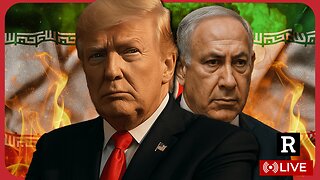 LIVE
LIVE
Redacted News
1 hour agoHIGH ALERT! US AND ISRAEL SPEEDING TOWARD WAR WITH IRAN, INFLUENCERS BEING PAID $7,000 PER POST
3,045 watching -
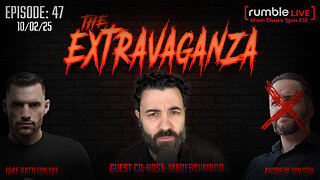 LIVE
LIVE
TheCrucible
1 hour agoThe Extravaganza! EP: 47 with guest host MadeByJimbob (10/02/25)
1,335 watching -
 LIVE
LIVE
Kim Iversen
1 hour agoAMERICA HUMILIATED: U.S. Generals Obey Israeli Demands And Hasbara Floods Social Media
1,289 watching -
 LIVE
LIVE
Dr Disrespect
7 hours ago🔴LIVE - DR DISRESPECT - BLACK OPS 7 MULTIPLAYER GAMEPLAY - NEW!
1,253 watching -
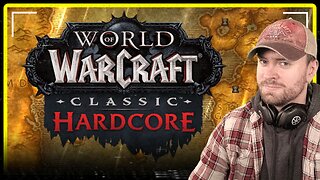 LIVE
LIVE
MattMorseTV
42 minutes ago🔴CHILLING + TALKING🔴
286 watching -
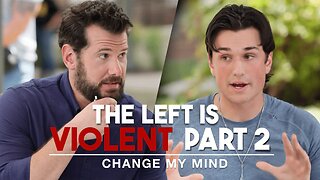 1:26:12
1:26:12
Steven Crowder
8 hours agoThe Left is Violent (Part 2) | Change My Mind
384K635 -
 2:11:35
2:11:35
Pop Culture Crisis
3 hours agoElon Declares 'CANCEL NETFLIX' Trump Threatens Hollywood, Bad Bunny Superbowl Boycott? | Ep. 927
9.36K -
 3:26:05
3:26:05
Barry Cunningham
4 hours agoPRESIDENT TRUMP IS READY TO GO SCORCHED EARTH! SHUTDOWN DAY 2 BRIEFING!
17.5K17 -
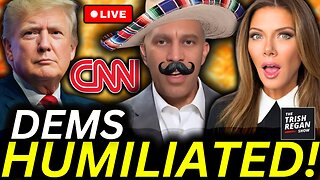 LIVE
LIVE
The Trish Regan Show
1 hour ago🚨Trump’s TRIUMPH! DEMS HUMILIATED on LIVE TV as SHUTDOWN BLAME BACKFIRES!
1,079 watching -
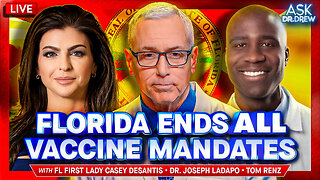 1:39:14
1:39:14
Dr. Drew
5 hours agoFL First Lady Casey DeSantis: Florida Ending ALL Vaccine Mandates, Including For Schools w/ FL Surgeon General Dr. Joseph Ladapo & Tom Renz – Ask Dr. Drew
44.7K4
